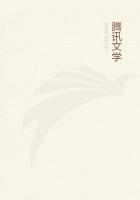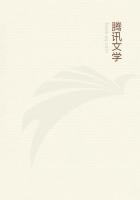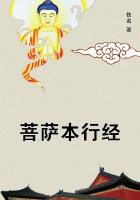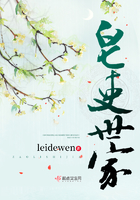The saying closely fitted the outward fact,but was of a subtle injustice in its implication of anything histrionic in Harte's nature.Never was any man less a 'poseur';he made simply and helplessly known what he was at any and every moment,and he would join the witness very cheerfully in enjoying whatever was amusing in the disadvantage to himself.In the course of events,which were in his case so very human,it came about on a subsequent visit of his to Boston that an impatient creditor decided to right himself out of the proceeds of the lecture which was to be given,and had the law corporeally present at the house of the friend where Harte dined,and in the anteroom at the lecturehall,and on the platform,where the lecture was delivered with beautiful aplomb and untroubled charm.He was indeed the only one privy to the law's presence who was not the least affected by it,so that when his host of an earlier time ventured to suggest,"Well,Harte,this is the old literary tradition;this is the Fleet business over again,"he joyously smote his thigh and crowed out,"Yes,the Fleet!"No doubt he tasted all the delicate humor of the situation,and his pleasure in it was quite unaffected.
If his temperament was not adapted to the harsh conditions of the elder American world,it might very well be that his temperament was not altogether in the wrong.If it disabled him for certain experiences of life,it was the source of what was most delightful in his personality,and perhaps most beautiful in his talent.It enabled him to do such things as he did without being at all anguished for the things he did not do,and indeed could not.His talent was not a facile gift;he owned that he often went day after day to his desk,and sat down before that yellow postoffice paper on which he liked to write his literature,in that exquisitely refined of his,without being able to inscribe a line.It may be owned for him that though he came to the East at thirty four,which ought to have been the very prime of his powers,he seemed to have arrived after the age of observation was past for him.He saw nothing aright,either in Newport,where he went to live,or in New York,where he sojourned,or on those lecturing tours which took him about the whole country;or if he saw it aright,he could not report it aright,or would not.After repeated and almost invariable failures to deal with the novel characters and circumstances which he encountered he left off trying,and frankly went back to the semimythical California he had half discovered,half created,and wrote Bret Harte over and over as long as he lived.This,whether he did it from instinct or from reason,was the best thing he could do,and it went as nearly as might be to satisfy the insatiable English fancy for the wild America no longer to be found on our map.
It is imaginable of Harte that this temperament defended him from any bitterness in the disappointment he may have shared with that ****** American public which in the early eighteenseventies expected any and everything of him in fiction and drama.The long breath was not his;he could not write a novel,though he produced the like of one or two,and his plays were too bad for the stage,or else too good for it.At any rate,they could not keep it,even when they got it,and they denoted the fatigue or the indifference of their author in being dramatizations of his longer or shorter fictions,and not originally dramatic efforts.
The direction in which his originality lasted longest,and most strikingly affirmed his power,was in the direction of his verse.
Whatever minds there may be about Harte's fiction finally,there can hardly be more than one mind about his poetry.He was indeed a poet;
whether he wrote what drolly called itself "dialect,"or wrote language,he was a poet of a fine and fresh touch.It must be allowed him that in prose as well he had the inventive gift,but he had it in verse far more importantly.There are lines,phrases,turns in his poems,characterizations,and pictures which will remain as enduringly as anything American,if that is not saying altogether too little for them.

